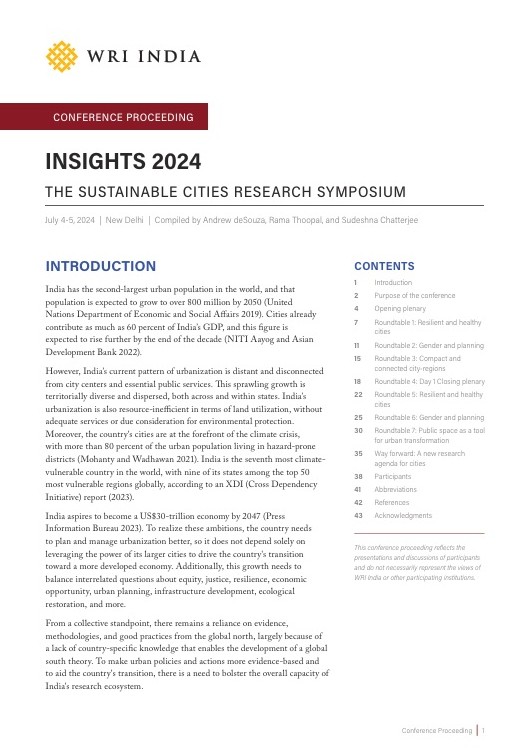Korchi’s Forest Communities and the Mahagramsabha
by e -
In Korchi, a tribal block in Maharashtra’s Gadchiroli district, tendu patta (leaves of tendu plant) is a valuable resource for forest dwellers. Used to wrap tobacco in the form of beedis (a local variant of a cigar), tendu leaves are seasonal produce collected by forest-dwelling communities and recorded in their ‘tendu job cards’ every day. This annually issued card helps them calculate the number of tendu leaves bundles collected and receive their income at the end of the season.
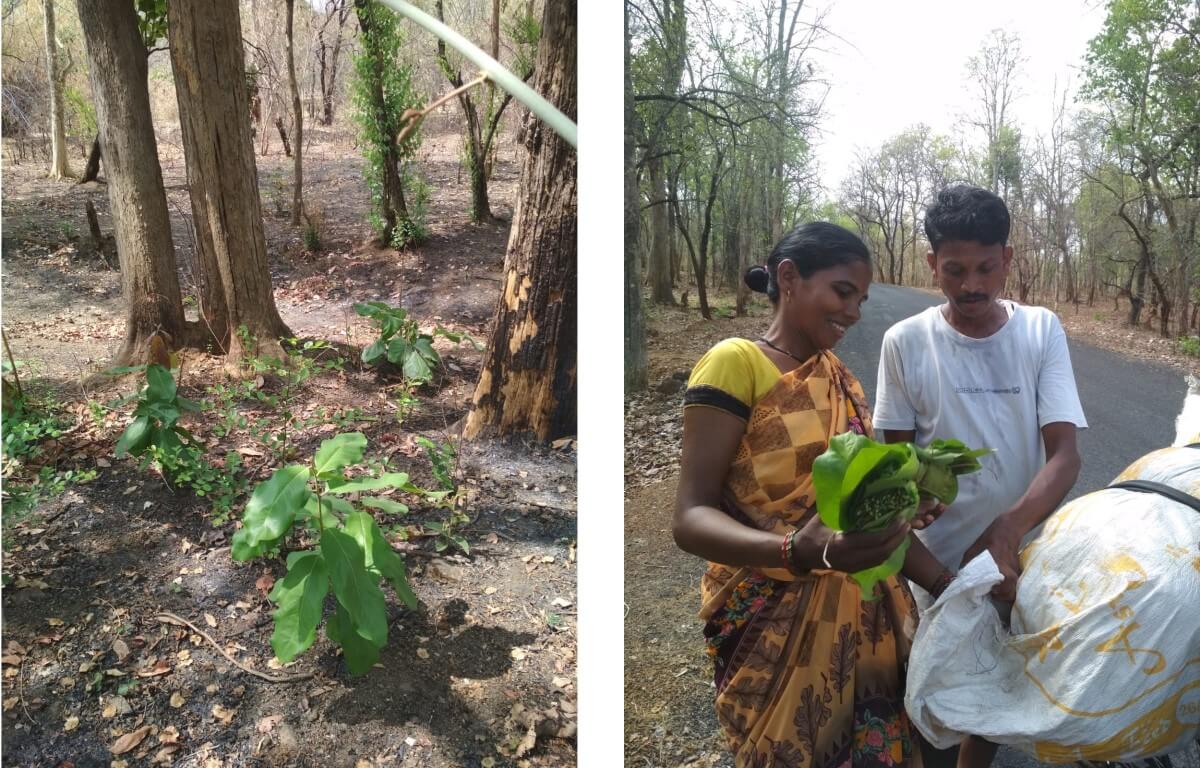
Korchi’s forest yields several minor forest produce (MFP) such as mahua, bahera, harra, chironji, jamun and aonla. But tendu leaves, also known as green gold, provide a higher income to tribal families for lesser days of labor as compared to other MFPs. Thus, tendu job cards hold great importance for the community. The story of these tendu job cards demonstrate the success of Korchi’s community-based governance of forest resources and their conservation.
Struggle for Income and Rights
Until 2017, Korchi block was divided into 22 tendu units by the forest department for ease of collection and recordkeeping. These tendu units were given yearly targets of leaves collection by the forest department based on an average of the past three years’ collection. The department further issued tenders for aggregation of tendu leaves. Villagers earned minimum wages on their collection and a share from the bonus of 20-30% credited to gram sabha from the royalty revenue received by the forest department from the contractor. This entire transaction was recorded in a register held with the forest department.
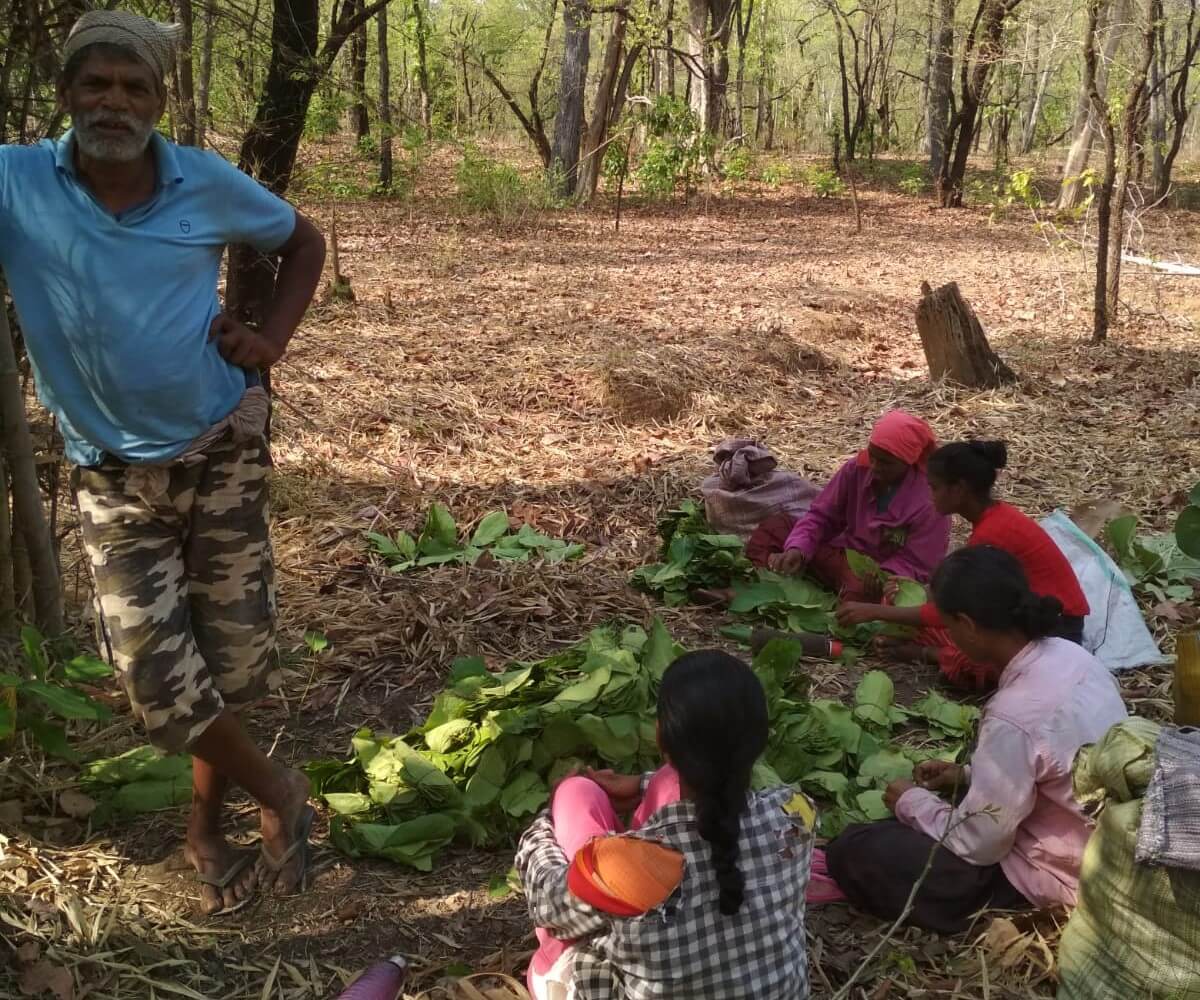
The contractor often shared a lower collection target than the one set by the forest department, since collection above this target (over collection) did not obligate the contractor to pay bonuses to the villagers and they would only receive minimum wages for it. Consequently, people tried negotiating prices with the contractor in their individual capacity, but even then, they could hardly get around INR 5000 for a standard bag of 1000 bundles of 70 leaves each, including both wages and bonus. Inconsistent record-keeping, lack of information on minimum wages, and delays of up to two years in payment of bonuses also affected the income of the villagers.
Recognizing Community Rights Over Forest Resources
With the recognition of Community Forest Resource (CFR) rights in 2010 under the Scheduled Tribes and Other Traditional Forest Dwellers (Recognition of Forest Rights) Act, 2006, popularly known as the Forest Rights Act (FRA), 2006, the ownership and management of minor forests resources shifted from the forest department to gram sabhas. The Act recognized and vested forest-dwelling scheduled tribes and other traditional forest communities with the rights to own, manage and sustainably harvest MFPs. The resolution passed in 2015 under the 2014 rules framed for the Panchayats (Extension to Scheduled Areas) Act, 1996 by the Government of Maharashtra, also empowered the gram sabhas to either sell or auction MFPs.
While both acts enabled gram sabhas to own and manage their forest resources sustainably, Korchi’s people chose gram sabhas formed under FRA as the leading institution for managing their resources as this gave every adult villager a better opportunity at participation. In addition, the presence of tendu across the region further enabled gram sabhas to initiate trading of tendu leaves.
Emergence of Korchi’s Mahagramsabha
Of the three major regions of Korchi, Padiyaljob and Kumkod, where CFR rights have been recognized, came together to form the Mahagramsabha – a federation that brought together 90 gram sabhas on a common platform for the first time in 2017. Two male and two female members represent each village in the federation.
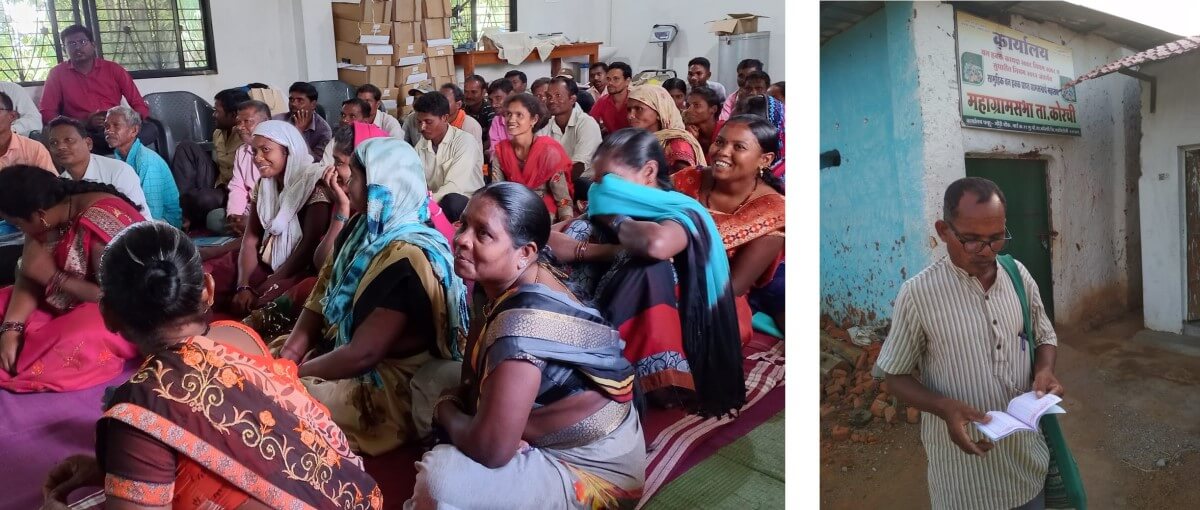
The forest department’s 22 tendu units were thus replaced by the seven clusters of the Mahagramsabha. This community-led initiative increased the income of tribal gatherers, including women, from over INR 4500 in 2013 for a standard bag to around INR 11000 in 2022 (based on information retrieved from tendu job cards of Salhe village residents).
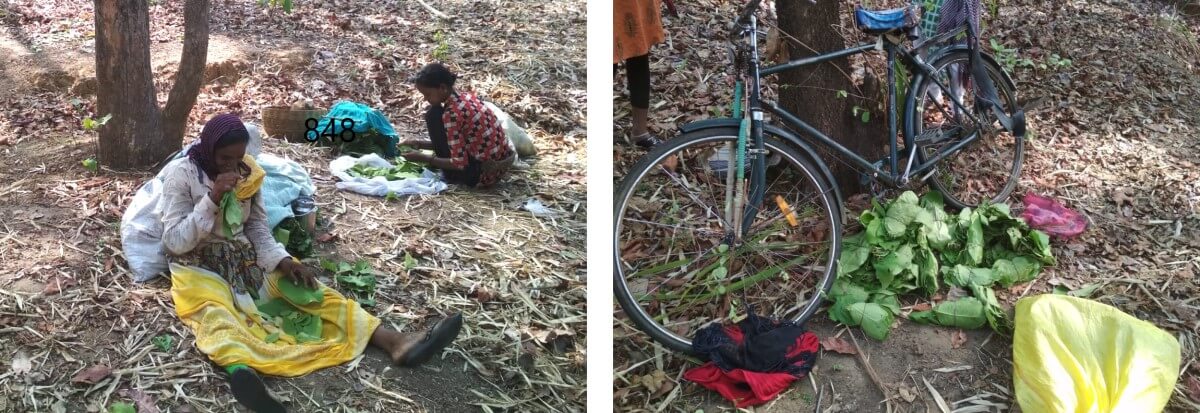

Under the new system, gram sabhas issue tenders inviting bids from contractors. The villagers collect tendu leaves from the forest, hand the bundles over to the contractor and maintain this daily record in their tendu job cards issued by the Mahagramsabha. The Mahagramsabha is also anticipating bringing more MFPs under this collective trade mechanism.
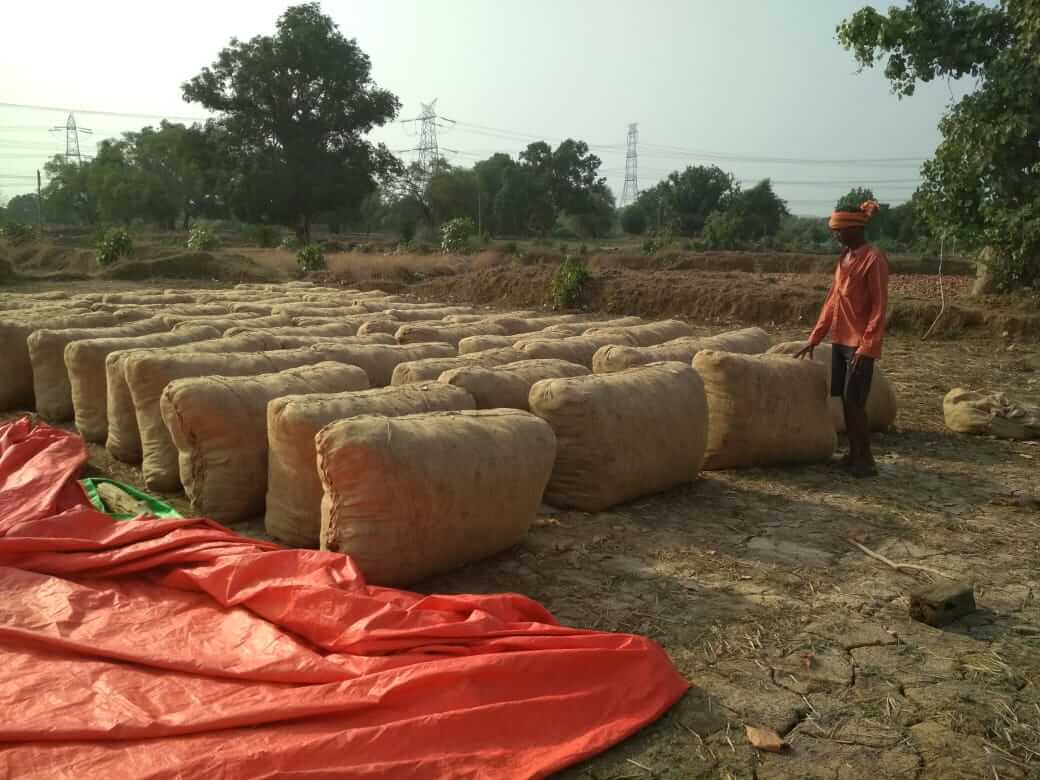
Why Korchi Mahagramsabha Is a Game Changer for Its Forests
Recognition of the rights of communities over forest resources contributes to healthier forests and is key to their sustainable management. While FRA, 2006 provided a legal framework securing resource rights for the tribal communities and other traditional forest dwellers, it was collective action under the Mahagramsabha that helped them organize their efforts and better govern their local forest resources.
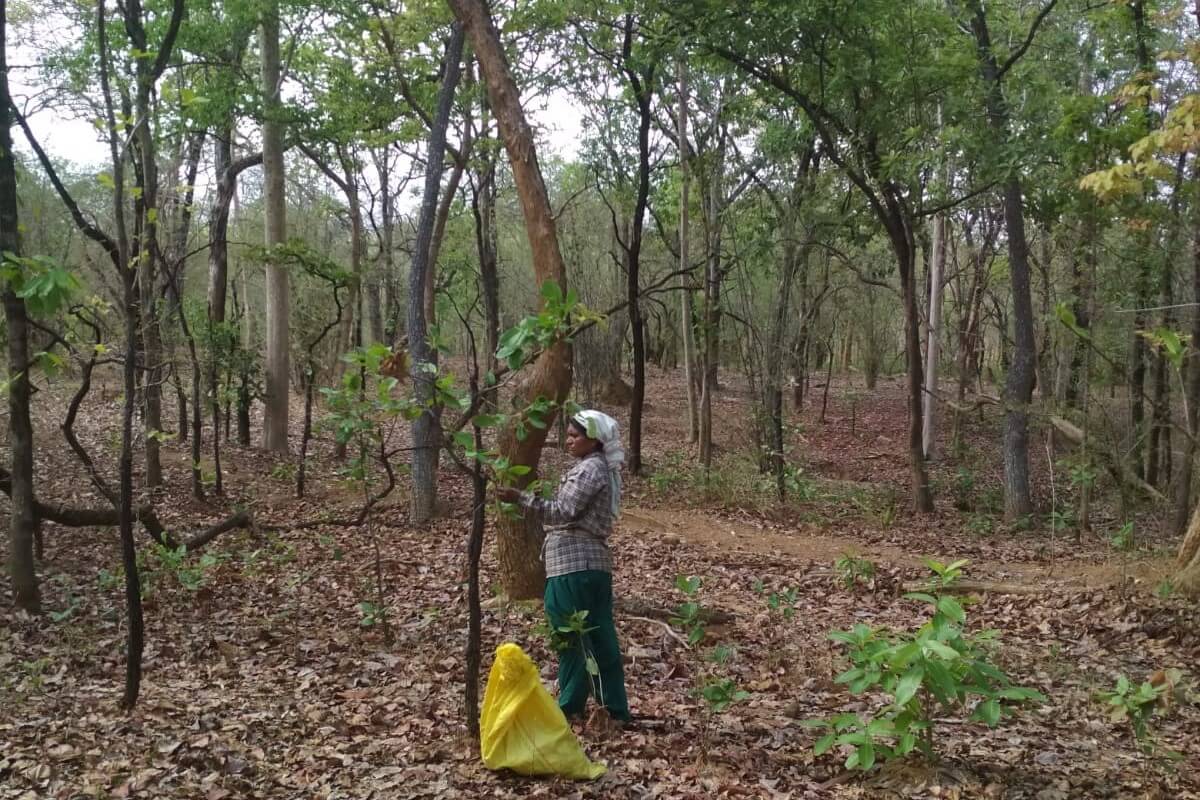
In Maharashtra, CFR rights are currently recognized in 11,07,487 hectares (till November 2022) and can be scaled to approximately 39,33,570 hectares. The Mahagramsabha model of Korchi demonstrates that recognizing these CFR rights can empower local communities to conserve, protect and sustainably utilize their forests, thus, potentially securing livelihoods for forest-dependent people in more than 32 million hectares across India. Additionally, it can reduce deforestation, offer an opportunity to fight climate change by sequestering atmospheric carbon and conserve biodiversity. For years, the existence of forest dwellers is intrinsically linked with forests as their culture, identity, livelihoods and survival depend on them. Healthier forests ensure resilient communities and sustainable development for all.
All photos by Seema Yadav/ WRI India.
All views expressed by the authors are personal.

